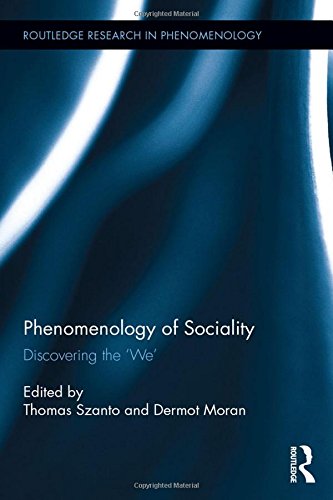

Most ebook files are in PDF format, so you can easily read them using various software such as Foxit Reader or directly on the Google Chrome browser.
Some ebook files are released by publishers in other formats such as .awz, .mobi, .epub, .fb2, etc. You may need to install specific software to read these formats on mobile/PC, such as Calibre.
Please read the tutorial at this link: https://ebookbell.com/faq
We offer FREE conversion to the popular formats you request; however, this may take some time. Therefore, right after payment, please email us, and we will try to provide the service as quickly as possible.
For some exceptional file formats or broken links (if any), please refrain from opening any disputes. Instead, email us first, and we will try to assist within a maximum of 6 hours.
EbookBell Team

0.0
0 reviewsPhenomenological accounts of sociality in Husserl, Heidegger, Merleau-Ponty, Sartre, Scheler, Schütz, Stein and many others offer powerful lines of arguments to recast current, predominantly analytic, discussions on collective intentionality and social cognition. Against this background, the aim of this volume is to reevaluate, critically and in contemporary terms, the rich phenomenological resources regarding social reality: the interpersonal, collective and communal aspects of the life-world (Lebenswelt). Specifically, the book pursues three interrelated objectives: it aims 1.) to systematically explore the key phenomenological aspects of social reality; 2.) to offer novel, state-of-the-art assessments of both central and lesser-known proponents of the phenomenology of sociality (Gurwitsch, Löwith, von Hildebrand, or Walther), and 3.) to contextualize this elaborate body of work in light of contemporary social cognition research, the growing literature in analytic social ontology, and current trends in moral psychology, moral phenomenology, and social and political philosophy. The collection brings together original articles by a host of prominent scholars and upcoming young talents to provide a comprehensive and up-to-date treatment of the topic. It will be essential reading for those studying phenomenological accounts of intersubjectivity, empathy, and community, including analytic, social, moral and political philosophers, and will also be of interest for social scientists and social psychologists.